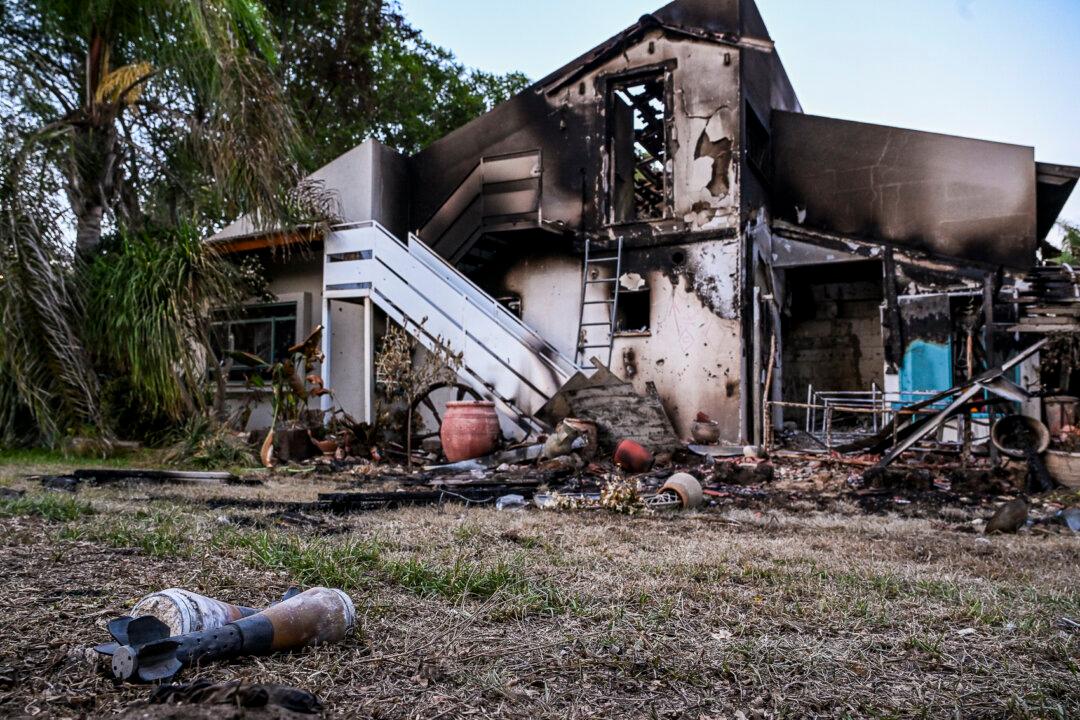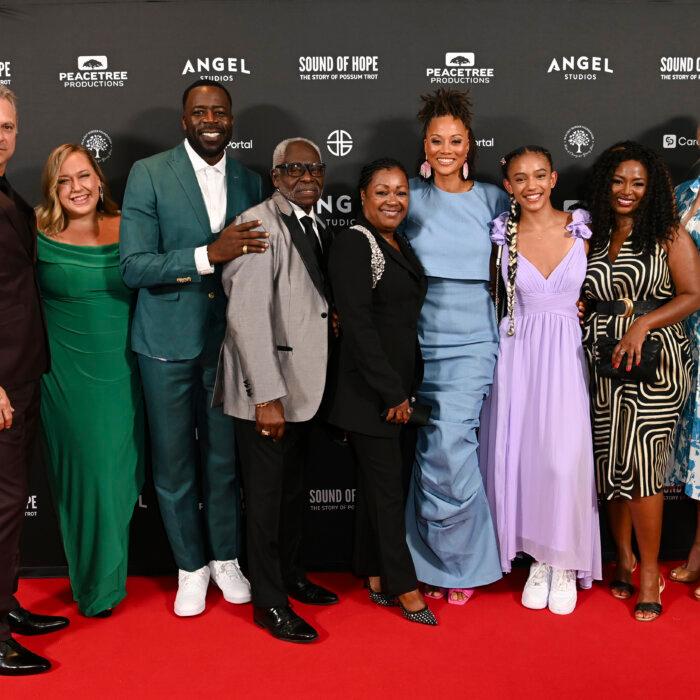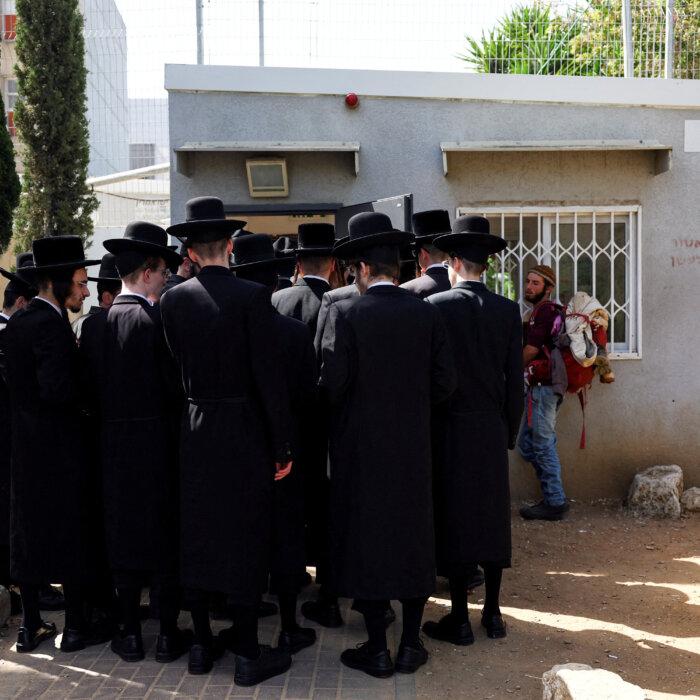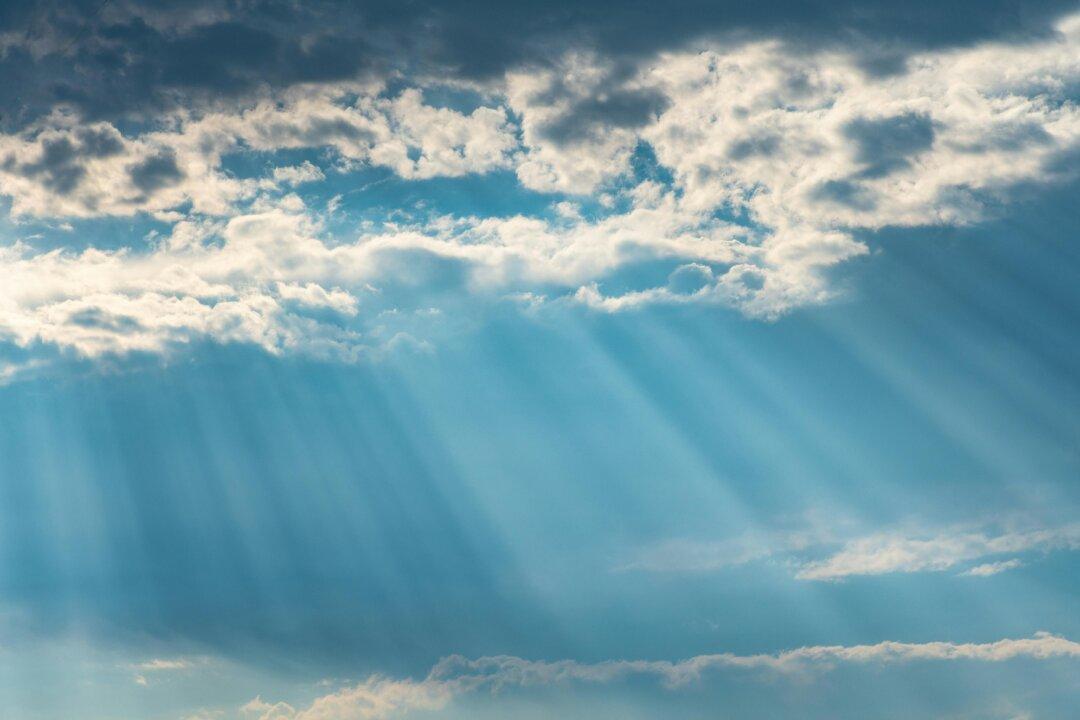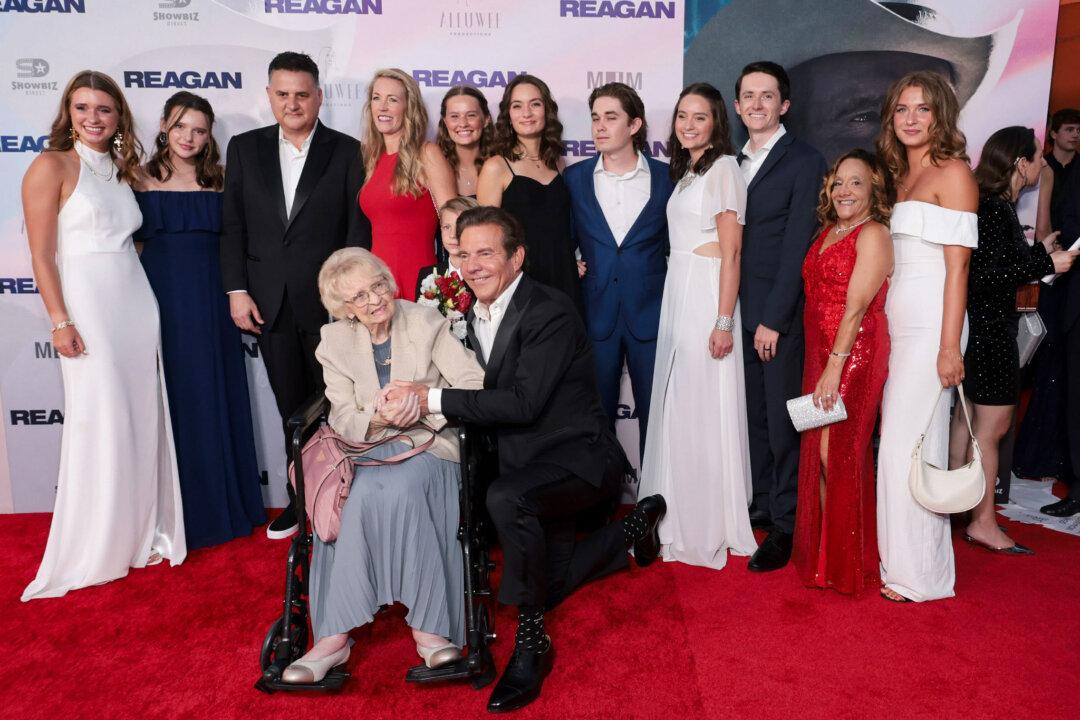Israeli-American film producer and screenwriter Dan Gordon, known for “Rambo: Last Blood,” “Murder in the First,” “The Hurricane,” and more, recently discussed his latest project with The Epoch Times, a four-part docuseries on the Oct. 7 Hamas attacks in Israel.
Mr. Gordon’s decision to create a documentary was driven by his desire to counteract what he saw as falsehoods about the attacks and their aftermath.
“I approached TBN and said I would like to do a documentary because I know that the lie is about to set in,” he said. “Holocaust denial will be on steroids compared to this.”
Mr. Gordon said he foresaw the changes in public perception that would occur soon after the attacks.
“I said to several friends, the narrative is going to shift. This was on Oct. 8, when there were demonstrations not calling for a ceasefire or decrying any Palestinian loss of life, but in solidarity with the terrorists who had just committed mass murder,” he said. “And I said, if that’s the case, it won’t be weeks, it will be days before the narrative is not that Israel is the victim of a massacre, but that Hamas and the residents of Gaza are the victims of Israeli genocide.”
The filmmaker recounted the harrowing experience of his sister, who escaped her kibbutz—a type of communal settlement unique to Israel—on Oct. 7.
“I was actually messaging on WhatsApp my adopted sister, Sarah, who lives in a kibbutz on the Gaza border, about 3,000 meters from the border,” Mr. Gordon said. “It was a holiday. She’s religious. So she turns her phone off on the Sabbath and on holidays. I had just sent her a holiday greeting, thinking I wouldn’t hear anything until the following day after the Sabbath. And then there was the little ding on my WhatsApp.”
Realizing something was wrong, Mr. Gordon’s military experience kicked in.
“I thought something is drastically wrong because she is religious and would never turn her phone on unless a war was going on. I said, ‘You know what is happening?’ She said that [it was] the most ferocious rocket fire she had ever seen, and she spent her whole life on that kibbutz.”
“She heard something much more ominous than rocket fire. Her husband heard small arms fire. I said, ‘You’ve got to lock your doors immediately and tell your husband to get his weapon, because if you can hear small arms fire, the terrorists are inside your community right now,’” he recalled, reflecting on the escalating danger.
Despite his sister’s initial disbelief, Mr. Gordon persisted.
“She said, ‘No, no, we hear echoes from the border.’ I said, ‘Sarah, I spent 45 years in the military. I know what the acoustics are in your kibbutz. I know how far it is from the border. If you hear small arms fire, they are in your community now.’ And then she said the thing that just absolutely killed me: ‘The lock on the door is broken, and my husband doesn’t have a weapon.’”
Mr. Gordon stayed in contact with his sister until she was safe.
“Eventually she and her family were evacuated. What she didn’t know at the time was that there was a pitched battle going on at the gate of her kibbutz and along the fence. They had a nine-man security team that repelled the terrorists with the help of one rogue tank crew that just jumped into their tank and said, ‘We’re gonna go help people.’ They did it without orders, probably against orders, and they saved them,” Mr. Gordon said.
“Unfortunately, those terrorists literally just crossed the street, the highway, into a kibbutz called Far Aza and massacred and kidnapped almost a hundred people.”
Mr. Gordon shared his personal history in the documentary series, marked by his military service in Israel.
The Docuseries
Mr. Gordon’s docuseries, particularly the third episode titled “Hysteria, Hatred, and History,” aims to document and expose the realities of the Oct. 7 attacks and the subsequent reactions.“Here’s Hamas’ body cam footage of a family they have just kidnapped after they have murdered the eldest daughter. You can watch them see the interplay, what they are saying. Here’s the Hamas body cam footage dragging a girl who’s just been raped,” he told The Epoch Times.
This raw documentation serves to counteract denial and misinformation, he said.
In the second episode, titled “The Heroism,” Mr. Gordon doesn’t shy away from discussing what he describes as the failures that led to the Oct. 7 attacks.
“There was a complete and total failure of the senior echelons, both of the Israeli military and the entire Israeli Intelligence Community,” he told The Epoch Times. Comparing it to the Yom Kippur War, he noted that “it was not a failure to collect intelligence that would have said there is about to be a massacre. It was a failure to see what was right in front of you.”
Additionally, the filmmaker highlights the incredible acts of heroism that emerged.
“Ordinary Israelis, individual soldiers, police, paramedics, off-duty soldiers, off-duty police, and ordinary citizens up through grandparents, refused to be victims,” he said. “They saved themselves, their families, their neighbors, their communities, and many times complete strangers.”
He shared moving stories from his docuseries, telling The Epoch Times about an off-duty SWAT team member in Sderot who, together with his teammates, defeated the terrorists who had invaded Sderot and took over the Sderot Police station in “an absolutely heroic battle.”
Historical Significance
The series details the history and status of Gaza.“Israel left Gaza completely in 2005,” he told The Epoch Times. “There are two borders between Gaza and various countries. One was a border with Israel, and Israel controlled the Israeli side of that border. The other border was with Egypt, and that border is not anything that we control. The Egyptians did. The Egyptians closed that border because Hamas, quite frankly, was making an alliance with ISIS in Sinai against the Egyptian government, so Egypt, to protect itself, closed the border.”
In August and September 2005, Israel unilaterally withdrew all Israeli security forces and settlements from the Gaza Strip. This withdrawal included the evacuation of 21 Israeli settlements within the Gaza Strip and four settlements in the West Bank.
In Mr. Gordon’s view, Gaza exhibited many characteristics of a state, such as defined borders, stable population, strong central government, and an organized military.
“And by the way, they were elected in quite democratic elections,” he said.
The events of Oct. 7, according to Mr. Gordon, were a declaration of war.
Reaction in the United States
Mr. Gordon criticized the concept of judging morality based on casualty counts.“The idea of, ‘Oh, let’s count up the casualties, and that’s how we’ll determine morality,' is a false equivalency,” he said.
He reflected on the events leading up to the current conflict, pointing out that the people now suffering in Gaza were unharmed before Oct. 7.
“All the people who are dead or suffering in Gaza today were—all of them, without exception—alive and well on Oct. 6. The reason they are dead or suffering today is because on Oct. 7, Hamas decided to break the ceasefire that was in effect, to invade Israel.”
Mr. Gordon is outspoken about the reaction in the United States to the events of Oct. 7. He draws a parallel to historical denialism.
“You know, there are people to this day who deny that there were gas chambers in Auschwitz, or crematoria,” he said. He sees a disturbing trend in the current climate. “It’s morphed into this sort of Jew hatred that’s always been there. But now it’s not only acceptable, it’s virtuous.”
Identifying two groups among the demonstrators in the United States, Mr. Gordon states that “the smaller number are hardcore Hamas supporters. ... And they’re unapologetic about it.”
The second group, according to Mr. Gordon, consists of “white privileged kids” who may not know what they’re talking about.
“When you ask them, ‘You’re chanting from the river to the sea. Palestine will be free.’ What river is it? And what sea is it? They can’t give you an answer,” he said. “They have bought into this sort of bumper sticker mentality where there’s a binary choice.”
Mr. Gordon criticized their understanding of the conflict and the history.
On the topic of anti-Semitism, Mr. Gordon described it as “the oldest racial hatred in humanity.”
“In countries where Jews have assimilated, they were hated for assimilating, for trying to be like the majority. Where they didn’t assimilate, they were hated for being different. Where they succeeded, they were hated because they were too successful. Where they were poor, they were hated because they were a blight, and they were too poor.”
Mr. Gordon expressed deep concern about the future, especially within his own country.
“As an American, I see people in my country doing the same thing that ushered in the worst catastrophe in the history of Europe. And they’re doing it willingly, chanting the same things with the same logic. And that is worrisome to me.”
He said he hopes people who support Hamas will watch the docuseries to learn the history of the conflict.
A Career-Changing Decision
Mr. Gordon said he withdrew from the Writers Guild of America in response to the guild’s silence on the atrocities committed by Hamas on Oct. 7.“It wasn’t just a spur-of-the-moment decision. Weeks went by without them saying a word. They were certainly asked to say a word,” Mr. Gordon said.
He recalled a significant meeting with 300 writers urging the WGA to take a stand.
“Guys, this is the worst slaughter in the Middle East. Forget about Jews. This is the worst slaughter of a religious minority in the Middle East since ISIS slaughtered the Yazidi people,” he said.
Mr. Gordon underscored the gravity of the situation by comparing it to historical atrocities, emphasizing that the silence was not justifiable.
“Let’s say you don’t particularly care for Jews. Just put it in perspective. This is something you need to denounce, and it’s going to unleash untold misery to both the Israeli and the Palestinian people,” he said.
Returning to his decision to leave the WGA, Mr. Gordon reflected on the organization’s lack of response.
“In the face of all that, the WGA, in their response to 300 writers who asked them to come out and condemn Hamas, stated they could not reach a consensus,” he said.
“At that point, I thought, if you can’t reach a consensus decrying gang rape, mass murder, burning people alive, beheading people, ... if you can’t find a consensus to condemn that, it is not that your moral compass is broken; it’s that you don’t have one.”
